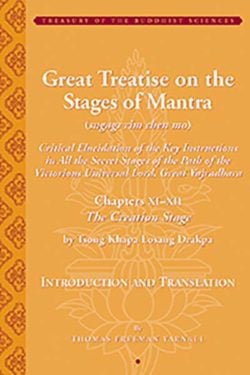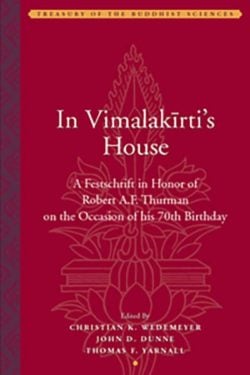Thomas Freeman Yarnall

Thomas Freeman Yarnall is an Associate Research Scholar in the Department of Religion at Columbia University.
Books, Courses & Podcasts
Great Treatise on the Stages of Mantra (Sngags rim chen mo)
Tsong Khapa’s Great Treatise on the Stages of Mantra (Sngags rim chen mo)—considered by the present Dalai Lama to be one of Tsong Khapa’s two most important books (along with his Lam rim chen mo)—is his masterful synthesis of the principles and practices of all four classes of Tantra, which formed the basis of his innovation in creating the esoteric “Tantric College” institution and curriculum in the early fifteenth century. With detailed reference to hundreds of works from the Tibetan Kangyur and Tengyur, the chapters presented and studied in this volume concern his treatment of the creation stage (bskyed rim) meditations of Unexcelled Yoga Tantra. This includes a detailed analysis emphasizing how and why such creation stage practices—utilizing deity yoga to transform death, the between, and life into the three bodies of buddhahood are indispensible to creating a foundation for successfully entering the culminal yogic practices of the perfection stage. (A subsequent volume will present the perfection stage chapters of this essential masterwork.)
An important work for both scholars and practitioners, this annotated translation is supplemented with extensive support materials.
In Vimalakīrti’s House
Over the course of nearly half a century, Robert A. F. Thurman has left an indelible mark on numerous fields of study, including Buddhist literature, Tantric Buddhism, Tibetan studies, and the comparative sciences of mind. To celebrate his seventieth birthday, Thurman’s students and colleagues have come together to pay tribute to these contributions and to Thurman’s ongoing leadership in these fields by assembling a collection of essays of their own that extend and supplement his groundbreaking research.
In Vimalakīrti’s House is the result of this collaboration and represents a broad spectrum of cutting edge studies in areas central to Thurman’s own scholarly project. The resulting volume is itself a kind of “treasury of the Buddhist sciences,” insofar as its authors explore wide-ranging problems in art, literature, epistemology, history, ritual, buddhology, and lexicography.


